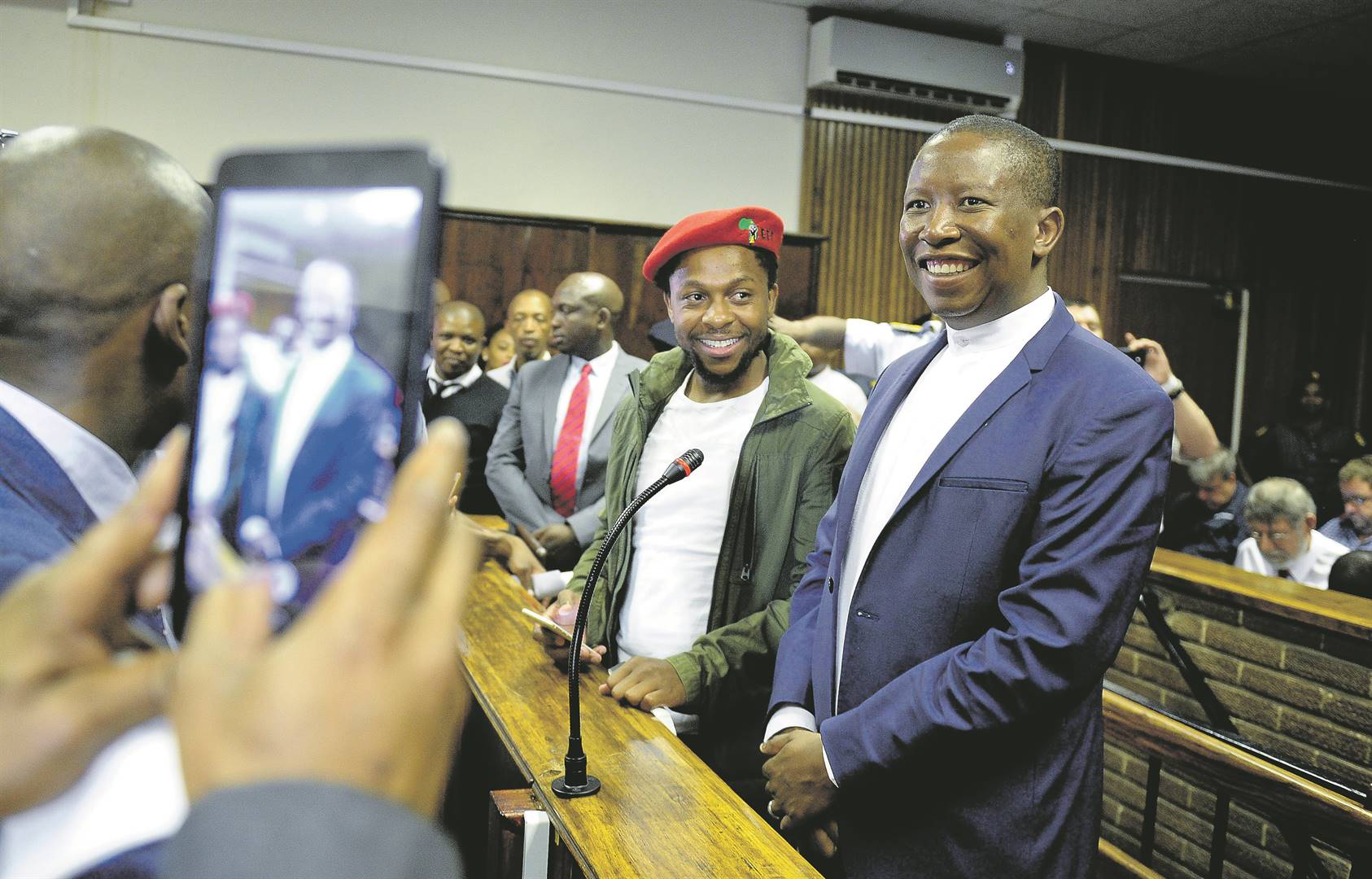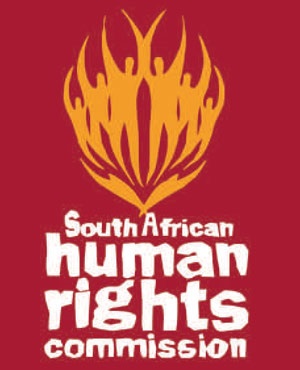
Where there are competing rights, they have to be balanced against each other; no right takes precedence
The South African Human Rights Commission (HRC) has attracted much criticism for its ruling last week that various racially charged comments by EFF leaders did not constitute hate speech.
The commission ruled that four comments by EFF leader Julius Malema and one by the party’s general secretary, Godrich Gardee, did not breach the threshold of the protection of free speech guaranteed by the Constitution.
The impugned comments referred to white people and occupation of land, Malema’s singing Kiss the Boer, Indians being racist and not respecting Africans, and Gardee calling DA leader Mmusi Maimane “a garden boy” on Twitter.
It is important to understand the legal difficulties confronting the HRC in evaluating the complaints.
The legal interpretation of what constitutes hate speech is not settled or clear.
Various rulings of the Equality Court have adopted different interpretations over the years.
The Constitution provides for various rights, including freedom of expression and equality, and all are underpinned by the right to human dignity as a basic constitutional value.
Where there are competing rights, they have to be balanced against each other; no right enjoys automatic precedence.
Section 16 of the Constitution provides for freedom of expression but section 16(2) excludes the advocacy of hatred that is based on race, ethnicity, gender or religion, and that constitutes incitement to cause harm.
It is a specific limitation of the right, beyond the provisions of the general limitation clause in section 36.
Then there is the Promotion of Equality and Protection of Unfair Discrimination Act (Pepuda) which prohibits hate speech and appears to provide a broader ambit of what constitutes hate speech than the Constitution.
Section 10 of Pepuda prohibits speech that is hurtful, harmful, or that incites harm and/or promotes or propagates hatred.
The HRC says it sets a much lower threshold of what constitutes hate speech than section 16 of the Constitution.
Section 39(2) of the Constitution requires that section 10 be interpreted in a manner that promotes the spirit, purpose and objects of the Bill of Rights – these include not only the right to freedom of speech but also the rights to equality and the constitutional value of human dignity.
It is surprising that the ruling makes only passing reference to the right to equality.
Its failure to evaluate this right in the context of the offending speech undermines the validity of the ruling.
This is particularly so because the primary purpose of Pepuda is to give effect to the constitutional right of equality.
The HRC ruling canvasses the various interpretive approaches to section 10 that have been adopted by the courts and the commission itself as a background to its ruling.
What is at issue here is the application of the law, as understood by the commission, to the particular comments that they had to make a ruling on.
It is possible that the commission could have reached the same conclusion or outcome without venturing into the controversial terrain of the relative racial identities of those making the hurtful comments and those to whom they were targeted.
This is where criticism of the ruling has been most focused, and where the ruling is most flawed.
It sets a problematic precedent by adopting a hierarchical approach to the racial status of the alleged offender and the target of the speech.
The ruling states “the African group was and remains significantly more vulnerable than the Indian group … the Indian population group enjoyed more political and economic privileges during apartheid than the African group” and “the white group is socioeconomically powerful … Mr Malema belongs to the vulnerable black population group”.
If the singing of Kill the Boer by an African person is not hate speech, would it be so if sung by a coloured or Indian person?
Would a white person saying that the majority of Indians are racist constitute hate speech?
These are the unintended implications of the ruling the HRC.
To justify its decision in respect of Malema saying that the majority of Indians are racist, the commission emphasises that he did not say that all Indians are racist.
But if he had said that all Indians were racist, would that be deemed hate speech? It’s certainly an inference one can draw from the ruling.
In assessing the context in which statements are made, which the HRC is obliged to do, they appear to have elevated the identity of the offender and target group above other contextual considerations.
The ruling has also seemingly ignored key factors such as the nature of the event and of the audience; the meaning of the words for that audience; the manner of the speech; and the identity of the speaker – these are key criteria in determining the intention to be hurtful, be harmful or promote hatred.
There is no indication in the ruling that the HRC considered these factors adequately or at all.
Moreover, whether or not the words uttered incited harm or promoted hatred depends on whether they can be reasonably construed to do so.
Put another way, how would a reasonable member of the audience understand the words and the message being conveyed?
Whether or not the utterance is hurtful also depends on the perspective of the target group, as distinct from the immediate audience.
The commission appears not to have considered that Malema is a politician with influence over his supporters.
It is arguable that politicians should be subject to greater scrutiny than ordinary members of an oppressed group making the same remarks.
Read: Exploring the constitutional definition of hate speech
There are two passages in the HRC ruling that expose the fallibility of its approach.
Firstly it says: “Robust speech must be protected for those who remain structurally marginalised to be able to express their moral agency through expression that conveys anger or frustration at persistent social injustice.” I think most of us would accept that as being correct.
But it then goes on to say: “These statements enjoy some constitutional value in dealing with matters such as land reform and inter-racial relations.”
This suggests that the right to freedom of expression can be exploited or abused in the course of promoting redress – this conflates racist rhetoric with what is acceptable political discourse in a vibrant democracy.
Can we really be expected to construe what Malema and Gardee said as contributing to social cohesion and resolving the land issue?
In respect of the statement calling for the occupation of white-owned land, it is particularly perplexing that the HRC saw fit to offer no comment on Malema’s calling on people to break the law – occupation of land, peaceful or not, is against the law.
In reaching its decision, the HRC appears to have stretched the limits of the interpretation of the law as well as the context in which these racist statements were made.
Such provocative language can and should have no place in a non-racial society based on democratic values, social justice and fundamental human rights.
The courts must correct the error of the commission.
The ruling also highlights once again government’s failure to put into effect those parts of Pepuda that place on it and others a duty to promote equality through the development and implementation of targeted programmes to raise awareness and promote a climate of understanding and mutual respect.
This failure must also call into question government’s commitment to eradicating inequality and promoting a culture of respect for human rights.
Naidoo is executive secretary of the Council for the Advancement of the Constitution
TALK TO US
Have you read the mentioned sections of the Constitution? Do you agree with the HRC’s decision?
SMS us on 35697 using the keyword HATE and tell us what you think. Please include your name and province. SMSes cost R1.50. By participating, you agree to receive occasional marketing material




 Publications
Publications
 Partners
Partners









